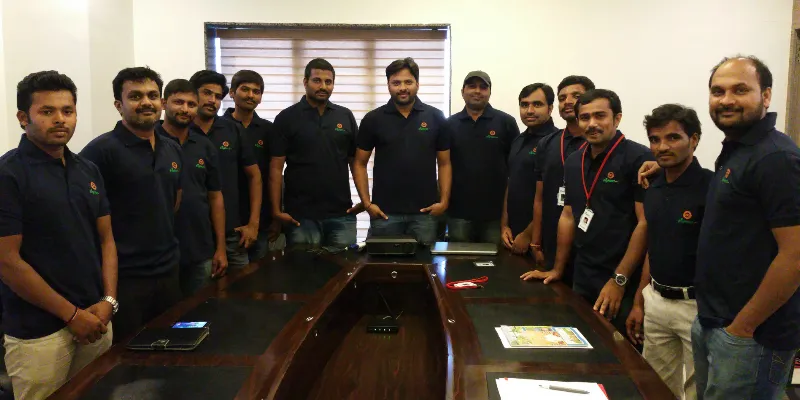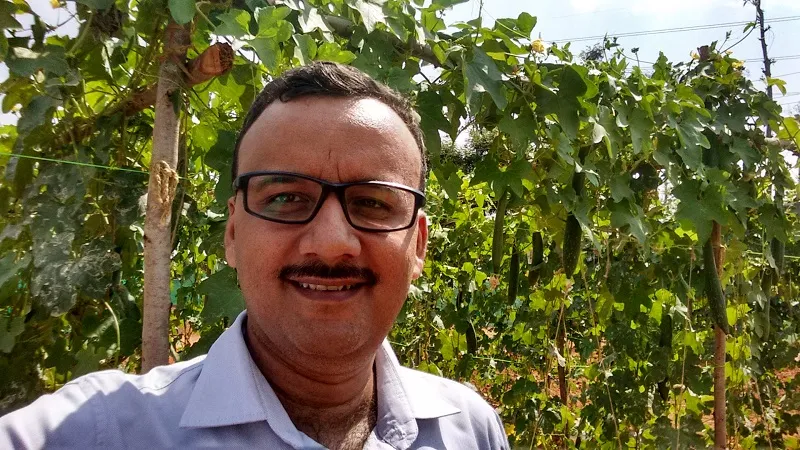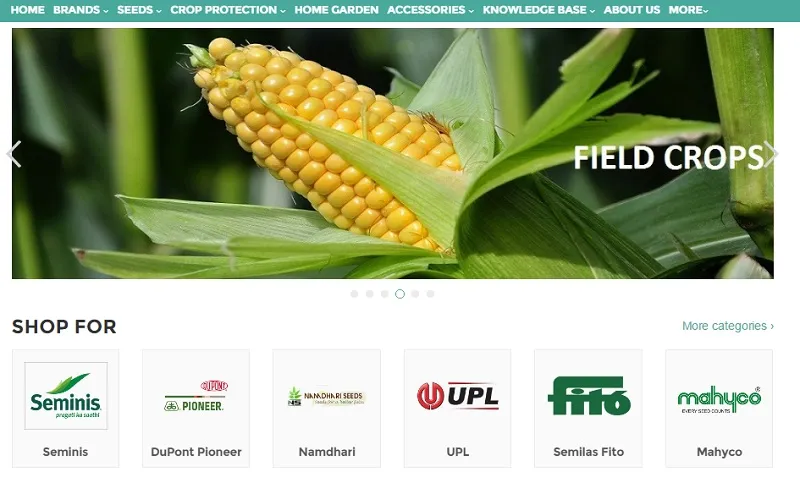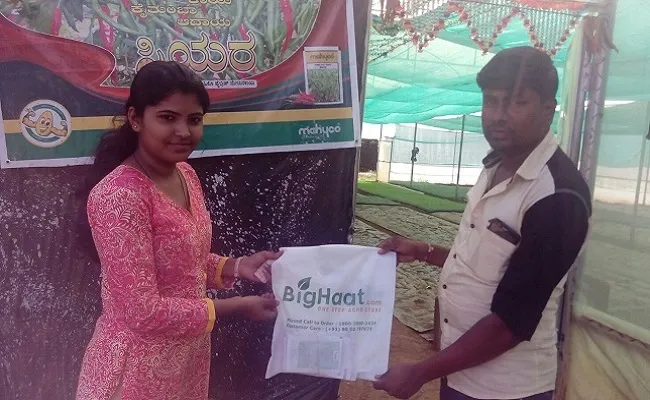How agri-commerce startup BigHaat has impacted lives of 50,000 farmers since 2015
Agriculture is the backbone of the Indian economy. According to a report from FICCI, about 65 percent of the Indian population depends directly on agriculture and it accounts for around 22 percent of India’s GDP. But farmers, on the other hand, face unprecedented challenges like unpredictable weather, non-availability of good quality seeds and fertilizers and un-reliable avenues to sell their crops after the harvest. There is a large scope to implement modern technology to solve these inherent problems.
While e-commerce has revolutionised the way buyers and sellers connect, it is yet to become mainstream in many niche markets, one of which is agriculture. BigHaat, an agri-commerce startup claims to have helped and impacted the lives of about 50,000 farmers through their platform over the past one year. Their goal is to help farmers reap the benefits of e-commerce and save time and money in the process.

Story so far
BigHaat.com was started in January 2015 by Sachin Nandwana, S Kumar and Raj Kancham, who all come from different backgrounds with decades of experience in public sector, corporate and startup roles. With BigHaat, they aim to empower farmers by providing them with quality agro inputs and accessories through a marketplace platform. The team currently consists of 25 employees.
As the founders had a background in farming in rural towns and cities, they were aware of the multiple challenges in the sector. Sachin noted,
Many e-commerce enterprises do not accept deliveries to semi-urban and rural areas. Transport and delivery are their main challenges.

These social issue and challenges shaped BigHaat team’s idea further and the startup initially piloted operations in January 2015 in specific clusters in Karnataka, for a couple of months. After getting proof of concept, they expanded to other key clusters like Andhra Pradesh, Telangana and Rajasthan in June 2015.
BigHaat’s vision is to ‘empower farmers’ through an e-commerce platform addressing the existing gaps in the system. They have so far partnered with multiple brands like Namdhari, Monsanto, Indus, Mahyco, UPL, PRIVI, Fito and others. Sachin noted,
We were the first to offer field crops inputs online by partnering with DuPont Pioneer and steadily expanding the supplier base and products portfolio to serve the larger farming community.
How BigHaat works

As an online marketplace for agriculture products, BigHaat lets customers shop across categories like seeds, crop protection nutrients and solutions and agro instruments.
The platform works on a hybrid model. It accepts online orders and also from their ‘feet on the street’ model, where sales people directly interact with farmers to help them place orders for products they need. BigHaat’s main customers other than farmers include nurseries, poly-houses, and contract farming communities.
BigHaat also provides call centre support from Bengaluru and Hyderabad and has a ‘missed call’ service through which farmers can request for a call back. For last-mile logistics and delivery the startup works with its own logistic teams and also relies on partners like India Post and Ship Rocket.
Bighaat has so far shipped about 5,000 orders with an average ticket size of Rs 10,000. Sachin noted that they have interacted with and helped about 50,000 farmers directly or indirectly over the last year and delivered shipments in 20 States, including remote locations like Jammu and Kashmir and Andaman islands.
While BigHaat’s most in-demand products were seeds, there is also good interest in other product categories. On the whole, BigHaat aims to connect farmers to verified suppliers directly and reduce travel periods required to procure their desired products. After the transaction, BigHaat also provides post-sale support to farmers and helps suppliers by providing ‘demand forecasts’ based on their data. Sachin added,
Through our multi-brand approach we aim to provide wide variety and also ensure that stock reaches farmers on time.
Sector overview
Agriculture, along with fisheries and forestry, is one of the largest contributors to India’s Gross Domestic Product (GDP).IBEF noted that India is the largest producer, consumer and exporter of spices and spice products and is also the second largest fruit producer in the world. But the sector faces multiple issues and there is lot of scope for improvement and optimisation.
The agricultural sector has strong forward and backward linkages and its performance affects every sector of the country. Several players have invested in the agricultural sector in India, mainly driven by the government’s initiatives and schemes. In August 2015, m-commerce platform Agrostar had raised a $4-million round from IDG Ventures along with existing investor Aavishkaar.
Implementing effective e-commerce solutions for the farming sector is of extreme importance as it has the potential to make the lives of farmers easier and also make farming more sustainable and profitable in the long run.
Future plans

BigHaat is bootstrapped so far and is currently in the process of raising an external round of funding. The startup currently has an Android app and going forward wants to further enhance its app experience and also develop an iOS app, to reach out to more customers and partners.
For the farmers benefit, BigHaat also aims to develop an in-depth knowledge base about best practices and other relevant information. It currently doed this on a smaller scale through ‘know how’ and ‘news’ sections on their website. The startup’s long-term goal for the coming years include developing a full-fledged SMS-based offline ordering system to help consumers and farmers in areas where there is intermittent or no Internet connectivity. Also in the pipeline are location tagging information systems and a buyback product platform.
BigHaat recently on-boarded investor Hemendra Mathur from SEAF India as their advisory board member. They also closed a deal and IFFCO eBazar, which is now a strategic channel partner for BigHaat to sell seeds at their pilot stores in Ghaziabad and Karnal locations.
Sachin estimates that as the country and multiple industries rely directly or indirectly on agriculture, agri-commerce will continue being an active sector with a lot of room for growth and disruption.
Website- www.BigHaat.com
Related reads: Can e-commerce save the Indian farmer?
Rs 1 Cr sales in four months – how a software engineer is giving Mandya’s debt-ridden farmers a new lease of life







